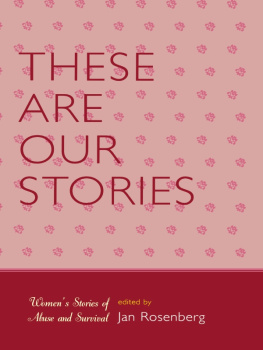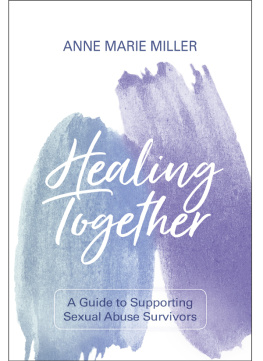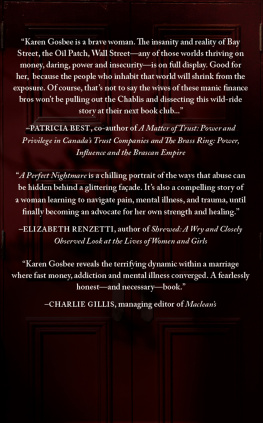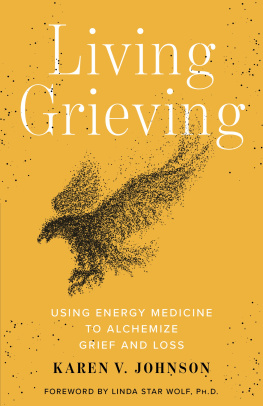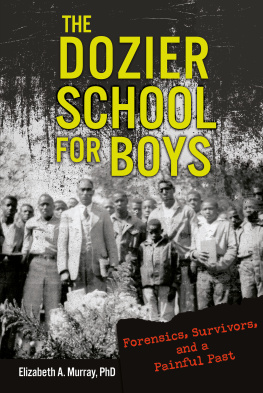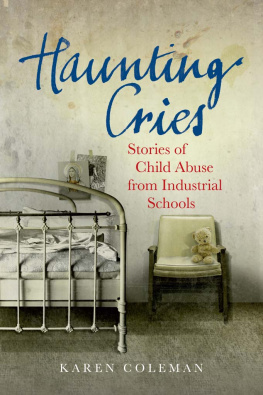Karen Sherman has spent the past thirty years working in conflict-affected and transitional countries around the world and raising three children. Prior to joining the Akilah Institute, an award-winning womens college in Rwanda, she served as chief operating officer at Women for Women International and held senior leadership positions at other international organizations where she focused mainly on womens economic development and participation. Sherman studied political science at the University of Oregon and earned a masters degree in Russian and East European studies at the George Washington University. She has served on multiple boards and is the founding chair of Everywoman.org, calling for a global treaty to end violence against women. A native of Portland, Oregon, she lives in Bethesda, Maryland, with her family.
When I started to write this book more than six years ago, I had no idea what I was taking on. I was an international development professional, not a writer. All I knew was that, as someone who cares deeply about womens issues and straddles the developed and developing worlds, I wanted to share what I had learned about the lives of women in countries affected by war and conflict, hoping their stories might touch and inspire others as they had touched and inspired me. It seemed disingenuous to share the personal stories of these women without being willing to share my own.
There are so many people to thank for giving me their time, their wise counsel, their prompts and encouragement over the years. First, the editors. Barbara Brownell Grogan, who believed in this book from the start and coached me through its birthing. Steve Marvin, who let me know that my writing still had a long way to go. John Thompson, who helped to shape the manuscript in so many ways. Tara Weaver, whose careful coaxing got my personal story on the page. Lisa Shannon, whose editorial advice and friendship were a constant source of inspiration. Coralie Hunter, whose deft guidance and steady pen took the book to a new level. And Michelle Hamilton, the minimalist, who pushed me to think in terms of scenes and to better balance the personal and professional.
Im also grateful to my friends, and a few agents, who took the time to read and provide invaluable comments on various versions of the manuscript: Karen Barr Engel, Cheryl Battan, Katherine Borsecnik, Stephanie Cabot, Coleen Carone, Sharon Davis, Phebe Macrae, Kate Johnson, Sean Kleier, Anne Mosle, Connie Sommers, Melanne Verveer, and Mary Zients.
Special thanks to:
Susan McEachern, vice president and senior executive editor at Rowman & Littlefield, for believing in the manuscript and seeing its promise, and to the rest of the team at R&L, including Alden Perkins, Katelyn Turner, and Barb Stark.
My colleagues at Women for Women International (past and present), for your continued support, and to my colleagues (past and present) at Akilah. You are truly changing the face of global education. Particular thanks to Aline Kabanda and Linda Mukangoga, for their keen insights about Rwanda, Elizabeth Dearborn Hughes and Cristi Ford for their constructive feedback on the manuscript, Anne DeGiovanni, for her deep wisdom and unwavering belief in this narrative, Jean Mulroy, whose development lens was instrumental to the revision process, and Sean Huff, for his unfailing dedication to me and this book.
My sisters around the world, for your strength and courage and for trusting me with your stories. And to the Rwandan people, for making me feel so at home in your country.
My parents, Marge and Allan Sherman; my sister, Laura; my brother, Ken, for their love and willingness to share some difficult memories. My sons, Eli, Sam, and Kai, for being the best boys ever and the loves of my life.
Bill, for always, always, always having my back. Your love and friendship mean the world to me.
Africas Singapore? The Economist, February 25, 2012. https://www.economist.com/business/2012/02/25/africas-singapore.
Alam, Mayesha, Sgolne Dufour-Genneson, and Rebecca Turkington. Security, Basic Services and Economic Opportunity in South Sudan: Perspectives of Women Post-Independence and Pre-Civil War. Washington, DC: Georgetown University School of Foreign Service, 2014.
Alfred, Charlotte. How South Sudans Conflict Is Killing Women Far from the Battlefield. Huffington Post, July 10, 2015. https://www.huffingtonpost.com/2015/07/10/women-in-south-sudan_n_7707560.html.
A New Country Rises from the Ashes. The Economist, May 4, 2013. https://www.economist.com/middle-east-and-africa/2013/05/04/a-new-country-rises-from-the-ruins.
Banda, Joyce. Africas Women Belong at the Top. Gates Notes (blog). September 14, 2018. Accessed September 24, 2018. https://www.gatesnotes.com/Development/Joyce-Banda-on-the-value-of-empowering-women.
Banda, Joyce, and Priscilla Agyapong. An Agenda for Harmful Cultural Practices and Girls Empowerment. Center for Global Development, December 12, 2016. https://www.cgdev.org/publication/agenda-harmful-cultural-practices-and-girls-empowerment.
Bertelli, Michele, and Javier Sauras. A Womans Burden in War-Torn South Sudan. Al Jazeera, September 30, 2017. https://www.aljazeera.com/indepth/features/2017/07/woman-burden-war-torn-south-sudan-170730132806188.html.
Blackney, Elizabeth. Dr. Denis Mukwege: Congos Nobel Nominee. Huffington Post, October 10, 2013. https://www.huffingtonpost.com/elizabeth-blackney/drdenis-mukwege-congos-n_b_4080518.html.
Bloomberg Philanthropies and NoVo Foundation. Social Investment Report: A Look at Women for Women International. Amstelveen, Netherlands: KPMG, 2012.
Boseley, Sarah. Rwanda: A Revolution in Rights for Women. The Guardian, May 28, 2010. https://www.theguardian.com/world/2010/may/28/womens-rights-rwanda.
Buvinic, Mayra, Rebecca Furst-Nichols, and Emily Courey Pryor. A Roadmap for Promoting Womens Economic Empowerment. Slideshow, United Nations Foundation, 2013.
Cavell, Anna. Q&A: South Sudan Moves Towards Forming Unity Government. Al Jazeera, January 13, 2016. https://www.aljazeera.com/news/2016/01/qa-south-sudan-moves-forming-unity-government-160113163129399.html.
Chamberlain, Gethin. South Sudans Battle for Cattle Is Forcing Schoolgirls to Become Teenage Brides. The Guardian, June 8, 2017. https://www.theguardian.com/global-development/2017/jun/08/south-sudan-battle-for-cattle-is-forcing-schoolgirls-to-become-teenage-brides.
Constable, Pamela. Proposed Law to Protect Afghan Women Faces Backlash. Washington Post, May 25, 2013. https://www.washingtonpost.com/world/asia_pacific/law-to-protect-afghan-women-faces-backlash/2013/05/25/3b47d1ea-c49f-11e2-9642-a56177f1cdf7_story.html.
Desai, Lisa. Why Women Are Economic Backbone of Rwanda. CNN News, July 24, 2010. http://www.cnn.com/2010/WORLD/africa/07/22/rwanda.women.business/index.html.
DR Congo: Senior UN Officials Relay Hopes for Latest Great Lakes Peace Effort. UN Daily News, June 4, 2013. https://news.un.org/en/story/2013/06/441362-dr-congo-senior-un-officials-relay-hopes-latest-great-lakes-peace-effort.
Dr. Mukwege, Panzi Hospital, and PHRs Partnership. Physicians for Human Rights, n.d. https://phr.org/issues/sexual-violence/program-on-sexual-violence-in-conflict-zones/networking-and-partnerships/phrs-partnership-with-dr-denismukwege-and-panzi-hospital-drc/.
Duany, Julia A., and Wal Duany. War and Women in the Sudan: Role Change and Adjustment to New Responsibilities. Northeast African Studies 8, no. 2 (2001): 6382. Michigan State University Press.
Duflo, Esther. Women Empowerment and Economic Development. Journal of Economic Literature 50, no. 4 (2012): 105179.
Enough Team, The. Not Just Lost Boys, but Lost Girlsin War-Torn South Sudan.


